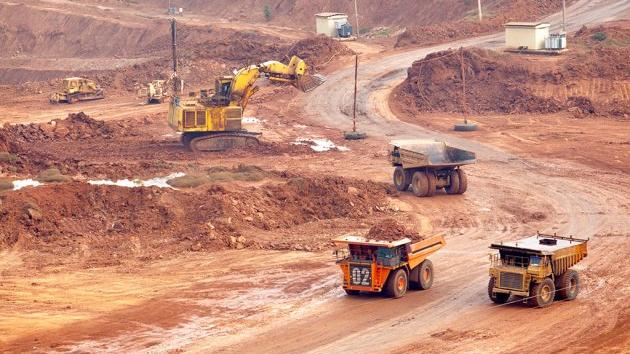Serbia Preparing Itself for EU Environmental Tax - Looking for Way to Provide State Help to Exporters and Establish Local System of Taxation of Carbon Emissions
Source: eKapija
 Thursday, 14.12.2023.
Thursday, 14.12.2023.
 13:23
13:23
 Thursday, 14.12.2023.
Thursday, 14.12.2023.
 13:23
13:23
Illustration (Photo: Needpix/Charles Rondeau)

According to the technical specification of the job, the analysis should consider a national model which will protect the local market in an optimal way and respond to the demands of the CBAM regulations in the field of electrical energy.
In 2005, the EU implemented the ETS (Emissions Trading System), a system for the trading of harmful gas emissions, and then in mid-2023, it also implemented the CBAM (Carbon Border Adjustment Mechanism), which enables the prevention of an unobstructed import of competitive products from third countries to the internal EU market.
In this way, the same kinds of products, both in the EU, through the implementation of the ETS, as well as in other states, through the implementation of CBAM, include the price of the emission of greenhouse gases.
That is practically a “green”, environmental move of sorts, by which the EU simultaneously prevents the potential “carbon leaks”, that is, the risk of European producers moving their production to countries in which lower carbon taxes (or none at all) are paid.
The implementation of the CBAM is planned in two phases, and the transition period began on October 1 and will last until the end of 2025. During this period, companies will be obligated to only report their CO2 emissions which are a result of the manufacture of products for the export to the EU, and from January 1, 2026, the full implementation of the CBAM is planned, which entails paying for all CO2 emissions from production processes.
It is therefore necessary to carry out a detailed analysis of the EU decree on the CBAM and all the accompanying decrees, the tendering documentation says, with an analysis of the regulations of the Energy Community and the demands toward the Republic of Serbia as a member of the Energy Community when it comes to the implementation of the CBAM, especially in the sense of a potential establishment of a joint ETS system for the Western Balkans.
It is also necessary to identify legal persons which operate in Serbia and which will be affected by the implementation of the CBAM and market pressures by the business partners.
Based on the obtained results, it is then necessary to carry out an analysis of the readiness of the companies to respond to the demands of the CBAM and an analysis of the impact of the CBAM on EPS and the consumption of electrical energy of the largest companies which export to the EU products from the six industries covered by the CBAM (iron, steel and steel products, aluminum cement, artificial fertilizers and electrical energy).
It is also necessary, it is said, to analyze the system of allowed state help within the CBAM and to analyze the available mechanisms of determining the price and taxation of carbon emissions.
– Considering that the overall competitiveness of domestic companies will be considerably lowered in the EU market from the moment of the implementation of the CBAM, a detailed analysis of the best international practices and available mechanisms for the establishment of a local system of determining the prices and taxation of carbon needs to be carried out – the text of the tender says.
It is added that the implementation of a local system of carbon taxation would lead to paying for carbon in local production, which would be calculated in the total price of the carbon-dioxide emissions for local exporters toward the EU, which would reduce the charge for the exporters toward the EU, and at the same time, with this kind of a collection system, the collected funds would remain in the budget of Serbia and be available for additional projects of environmental protection.
Finally, the analysis will also encompass the impact of the CBAM and the model of carbon fees (carbon pricing) on the process of the merging of the market of electrical energy of Serbia with the single EU market.
The CBAM regulation envisages the possibility of the so-called decoupling, that is, the separation of the market of a third party which is connected with the EU single market if an efficient mechanism of the payment of carbon fees is not established.
– It is therefore necessary to examine the impact of the CBAM and the system of carbon fees on the process of merging electrical energy markets in case the process of merging electrical energy markets cannot be carried out – says the tendering documentation.
The time frame for the implementation of the study is estimated at no more than 6 months.
The tender is open until January 15, and the job of the preparation of the analysis is estimated at RSD 33.3 million. Other details (in Serbian) can be found HERE.
B. P.
Tags:
Ministry of Mining and Energy
carbon fees
carbon pricing
EU green tax
EU environmental tax
carbon emissions
carbon dioxide emissions
CO2 emissions
CO2 fees
CBAM
Carbon Border Adjustment Mechanism
analysis of impact of carbon pricing and CBAM
Comments
Your comment
Naš izbor
Most Important News
Full information is available only to commercial users-subscribers and it is necessary to log in.
Follow the news, tenders, grants, legal regulations and reports on our portal.
Registracija na eKapiji vam omogućava pristup potpunim informacijama i dnevnom biltenu
Naš dnevni ekonomski bilten će stizati na vašu mejl adresu krajem svakog radnog dana. Bilteni su personalizovani prema interesovanjima svakog korisnika zasebno,
uz konsultacije sa našim ekspertima.


 Izdanje Srbija
Izdanje Srbija Serbische Ausgabe
Serbische Ausgabe Izdanje BiH
Izdanje BiH Izdanje Crna Gora
Izdanje Crna Gora


 News
News











